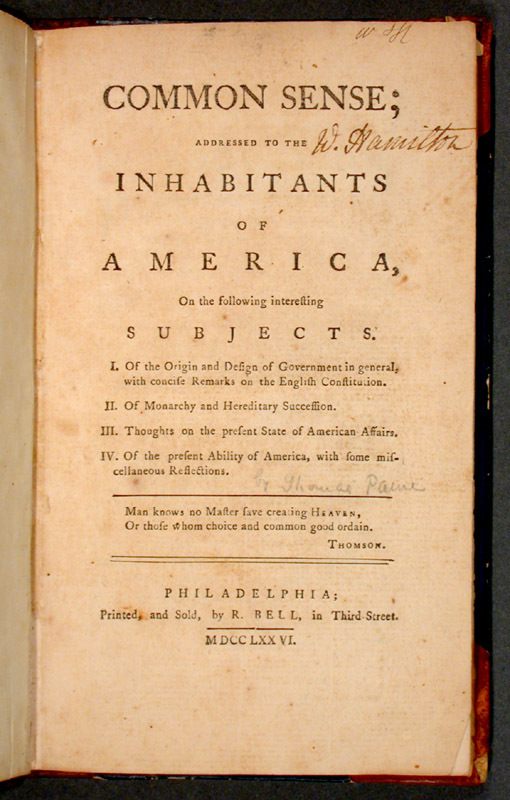1776: Paine, Common Sense (Pamphlet) | Online Library of Liberty
Related Links: Collections: The American Revolution and Constitution Thomas Paine Source: Thomas Paine, The Writings of Thomas Paine, Collected and Edited by Moncure Daniel Conway (New York: G.P. Putnam’s Sons, 1894). Vol. 1.| oll.libertyfund.org


